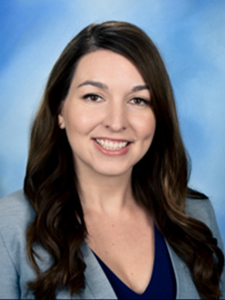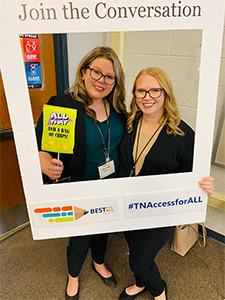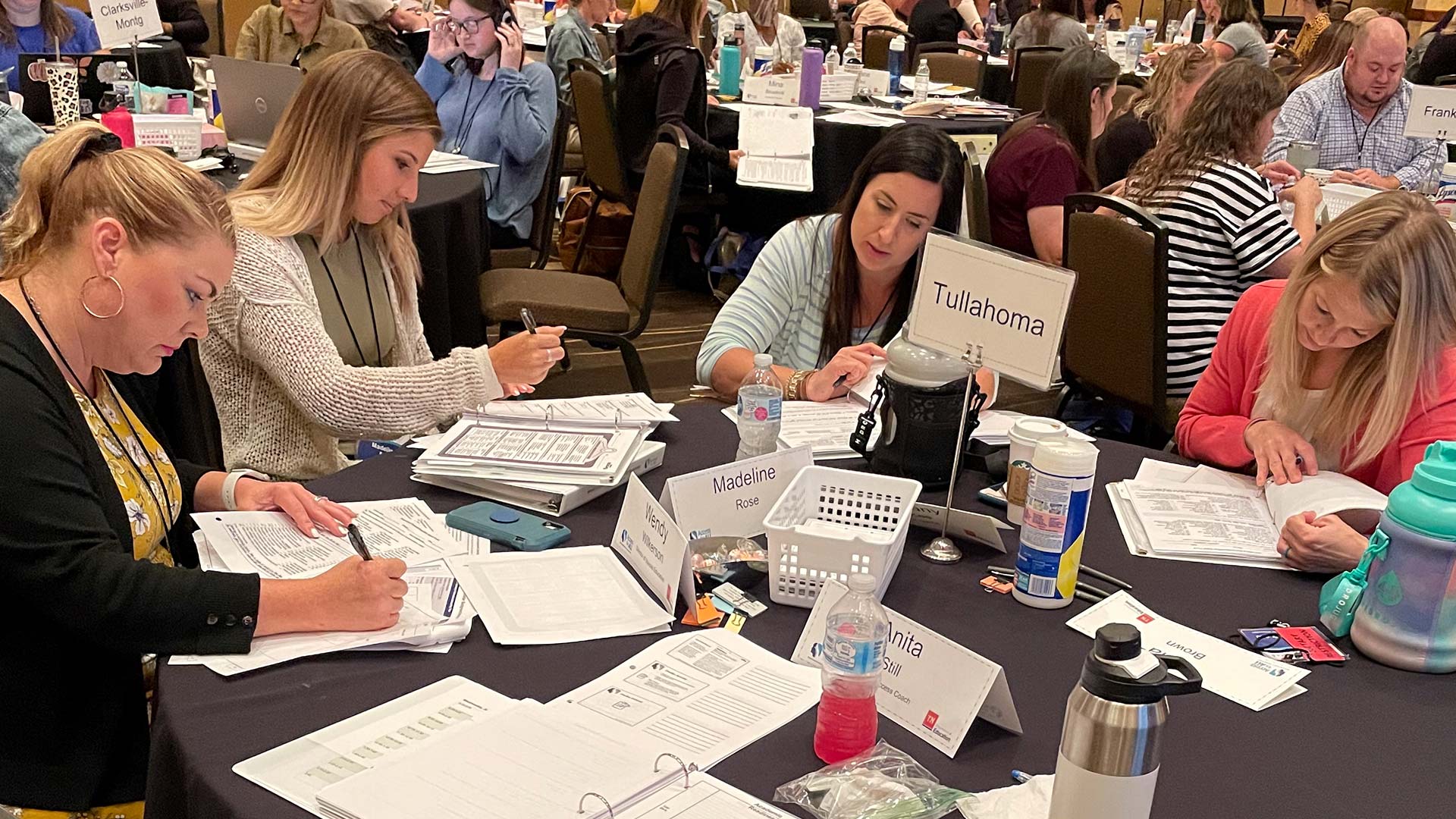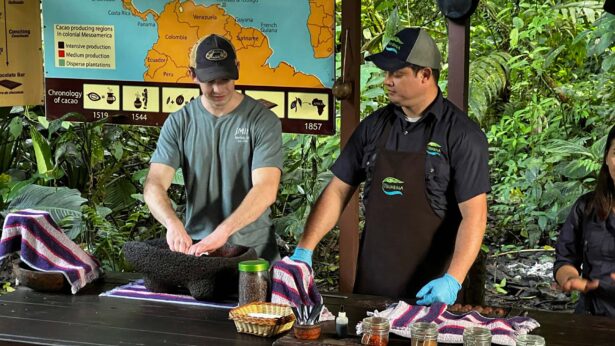
The Center for Literacy, Education and Employment (CLEE) at UT Knoxville aims to ensure all students possess the knowledge, skills and opportunities needed to flourish in the classroom. The center’s work touches the lives of students across the state but especially students with disabilities.
With a budget of $9 million from federal and state funds, the Access for All Learning Network (AALN) is the center’s largest initiative impacting literacy across the state. It originated as a $5.5 million State Personnel Development Grant the U.S. Department of Education awarded the Tennessee Department of Education (TDOE) in 2015, says CLEE Director Angela Wegner.
“That grant was to ensure that we were supporting students with disabilities,” she says. “One, in the general education space, but then also making sure that we had strong instructional practices in special education intervention.”
Following the conclusion of the grant in 2020, the center and TDOE sustained their commitment to ensuring access to inclusive environments and high-quality instruction for students with disabilities.
AALN increases access to inclusive learning environments with high-quality core instruction for students with disabilities in preschool through eighth grade. To accomplish this, CLEE partners with school districts across the state to provide in-depth coaching and professional
development to participating district leaders and educators.
The initiative has undergone significant developments over the years. The latest transformation occurred in the summer of 2022 and saw a transition to a coaching model that will expand into a supportive network of districts. Previously, AALN focused on a train-the-trainer model, which provided professional development to district leaders. This professional development was then redelivered by leaders to educators in their district. Now, AALN provides intensive one-on-one coaching for district leaders and teachers to foster more engagement and collaboration.
AALN is currently divided into the K-8 Access for All Learning Network and Early Childhood Access for All Learning Network. CLEE provides both coaching and professional development to district leaders, but the early childhood network focuses on giving preschool teachers more specialized attention from coaches. Additionally, the K-8 network emphasizes the pivotal role of high-quality instructional materials utilized in an inclusive learning environment.
Statewide coordinator for the early childhood network Amanda Mason says that, because pre-K is the foundation of a child’s education, special focus in those classrooms is crucial and can change the trajectory of children’s educational experiences for the rest of their schooling. Early-childhood coaches visit pre-K classrooms to offer individualized coaching each month and provide teachers with one-on-one support.

“That support could look broadly like overall instructional practices or overall quality of the environment,” Mason says. “Because preschool is so much learning through play, that environmental component is really important.”
Torie Renfroe, a pre-K teacher at Parsons Elementary School in Decatur County, has been working with the AALN for two years.
“Each year I have been able to see students with special needs make huge gains and also see other students learn amazing skills that will last them a lifetime,” Renfroe says. “We say all the time that this program is helping us teach our students to not only learn and grow from our rich literacy environment but also from their peers. We are better able to teach the whole child.”
Angela Long, statewide coordinator for the K-8 network, says that, when leading professional development for district leaders, fostering more inclusive settings and promoting collaboration between both sides of education—general education and special education—are deemed essential.
“We want to see our students with disabilities working in the same capacity as their general education peers,” Long says.
Long and Mason started at CLEE as coaches for the West Tennessee region. They share a background as special education teachers and emphasized how valuable it is for many former teachers and special education instructors to be the ones leading the network.
“When we’re designing content or working with district leaders, that’s our perspective,” Mason says. “We’ve been there, and we’ve lived it, and we’re trying to give people what we wish we would have had—what would have made us be the teacher that we wish we could have been for some of our students.”



